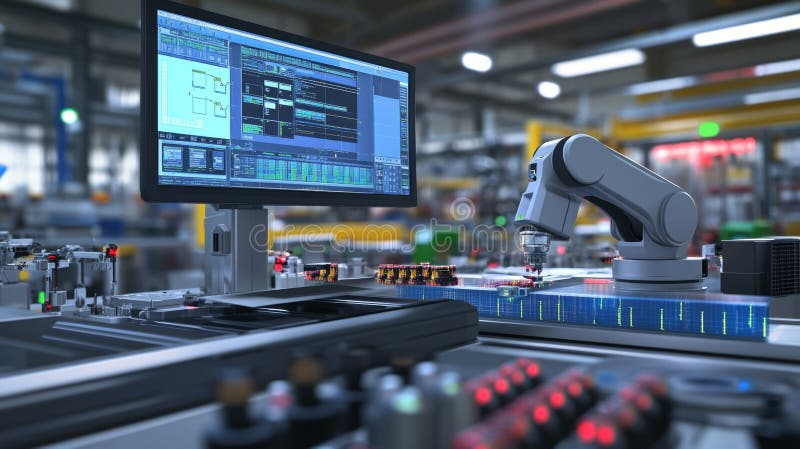The world of food quality inspection is undergoing a remarkable transformation with the advent of AI. As technology continues to evolve, the use of AI in food quality inspection is becoming increasingly prevalent, offering new ways to ensure the safety and quality of food products. This article delves into the role of AI in enhancing food quality inspection, exploring its benefits, applications, and future prospects.

Understanding AI in Food Quality Inspection
At its core, AI in food quality inspection involves using advanced algorithms and machine learning techniques to assess and ensure the quality of food products. This technology can analyze various aspects of food, from texture and color to size and shape, providing insights that help maintain high standards in the food industry.
One of the key benefits of AI in this context is its ability to process large volumes of data quickly and accurately. This means that food producers can identify potential issues before products reach consumers, ensuring that only the best quality items make it to market.
The Role of AI in Enhancing Food Safety
AI plays a crucial role in enhancing food safety by detecting contaminants and ensuring compliance with safety regulations. For example, AI-powered systems can identify foreign objects in food products or detect changes in quality that may indicate contamination. This not only protects consumers but also helps companies avoid costly recalls and damage to their reputation.
Applications of AI in Food Quality Inspection
The applications of AI in food quality inspection are vast and varied. Some notable examples include:
- Visual Inspection: Visual inspection AI uses computer vision technology to analyze food products for defects, ensuring they meet quality standards.
- Texture Analysis: AI systems can assess the texture of food products, ensuring consistency and quality across batches.
- Color Analysis: By analyzing the color of food products, AI can determine ripeness and freshness, providing valuable information for quality control.
- Size and Shape Analysis: AI can measure the size and shape of food items, ensuring they meet specified criteria.
Benefits of AI in Food Quality Inspection
There are numerous benefits to using AI in food quality inspection, including:
- Increased Efficiency: AI systems can process data much faster than humans, leading to quicker and more accurate inspections.
- Consistency: AI algorithms ensure consistent quality assessments, reducing the likelihood of human error.
- Cost Savings: By identifying issues early, AI helps companies save on costs associated with recalls and product waste.
- Improved Consumer Trust: By ensuring high-quality products, companies can build trust with consumers, leading to increased brand loyalty.
The Future of AI in Food Quality Inspection
The future of AI in food quality inspection looks promising, with ongoing advancements in technology paving the way for even more sophisticated systems. As AI continues to evolve, we can expect to see even greater improvements in the accuracy and efficiency of food quality inspections.
Moreover, the integration of AI with other technologies, such as the Internet of Things (IoT) and blockchain, will further enhance the capabilities of food quality inspection systems. This will enable a more comprehensive approach to ensuring food safety and quality, benefiting both producers and consumers alike.
Challenges and Considerations
Despite its many benefits, the implementation of AI in food quality inspection does come with challenges. These include the need for significant investments in technology and training, as well as the potential for data privacy concerns. Additionally, there is a need for industry-wide standards to ensure the consistent and effective use of AI in food quality inspection.
Case Studies
Several companies have successfully implemented AI in their food quality inspection processes, demonstrating the technology’s potential. For instance, some companies have used AI to reduce product defects by 20%, while others have seen a 30% increase in inspection accuracy.
Conclusion
In conclusion, AI is revolutionizing the field of food quality inspection, offering numerous benefits and opportunities for improvement. As technology continues to advance, its role in ensuring food safety and quality will only grow, making it an essential tool for the food industry.

FAQ
What is AI’s role in food quality inspection?
AI plays a pivotal role in food quality inspection by using advanced algorithms to assess the quality of food products, ensuring they meet safety and quality standards.
How does AI improve food safety?
AI improves food safety by detecting contaminants and ensuring compliance with safety regulations, protecting consumers from harmful products.
What are the benefits of using AI in food quality inspection?
The benefits of using AI in food quality inspection include increased efficiency, consistency, cost savings, and improved consumer trust.
For further reading, you can explore more about AI’s impact on industries and how it continues to shape our world.
This article contains affiliate links. We may earn a commission at no extra cost to you.

